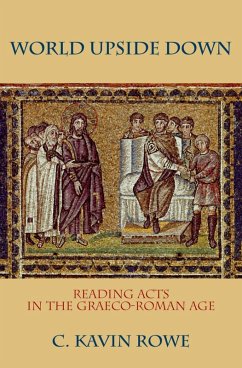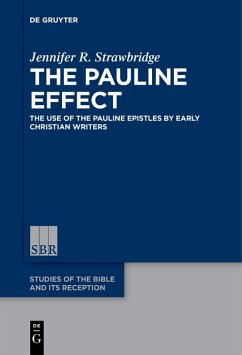
Desiring Divinity (eBook, ePUB)
Self-deification in Early Jewish and Christian Mythmaking
Versandkostenfrei!
Sofort per Download lieferbar
37,95 €
inkl. MwSt.
Weitere Ausgaben:

PAYBACK Punkte
19 °P sammeln!
Perhaps no declaration incites more theological and moral outrage than a human's claim to be divine. Those who make this claim in ancient Jewish and Christian mythology are typically represented as the most hubristic and dangerous tyrants. Their horrible punishments are predictable and still serve as morality tales in religious communities today. But not all self-deifiers are saddled with pride and fated to fall. Some who claimed divinity stated a simple and direct truth. Though reviled on earth, misunderstood, and even killed, they received vindication and rose to the stars. This book tells t...
Perhaps no declaration incites more theological and moral outrage than a human's claim to be divine. Those who make this claim in ancient Jewish and Christian mythology are typically represented as the most hubristic and dangerous tyrants. Their horrible punishments are predictable and still serve as morality tales in religious communities today. But not all self-deifiers are saddled with pride and fated to fall. Some who claimed divinity stated a simple and direct truth. Though reviled on earth, misunderstood, and even killed, they received vindication and rose to the stars. This book tells the stories of six self-deifiers in their historical, social, and ideological contexts. In the history of interpretation, the initial three figures have been demonized as cosmic rebels: the first human Adam, Lucifer (later identified with Satan), and Yaldabaoth in gnostic mythology. By contrast, the final three have served as positive models for deification and divine favor: Jesus in the gospel of John, Simon of Samaria, and Allogenes in the Nag Hammadi library. In the end, the line separating demonization from deification is dangerously thin, drawn as it is by the unsteady hand of human valuation.
Dieser Download kann aus rechtlichen Gründen nur mit Rechnungsadresse in A, B, BG, CY, CZ, D, DK, EW, E, FIN, F, GR, HR, H, IRL, I, LT, L, LR, M, NL, PL, P, R, S, SLO, SK ausgeliefert werden.













